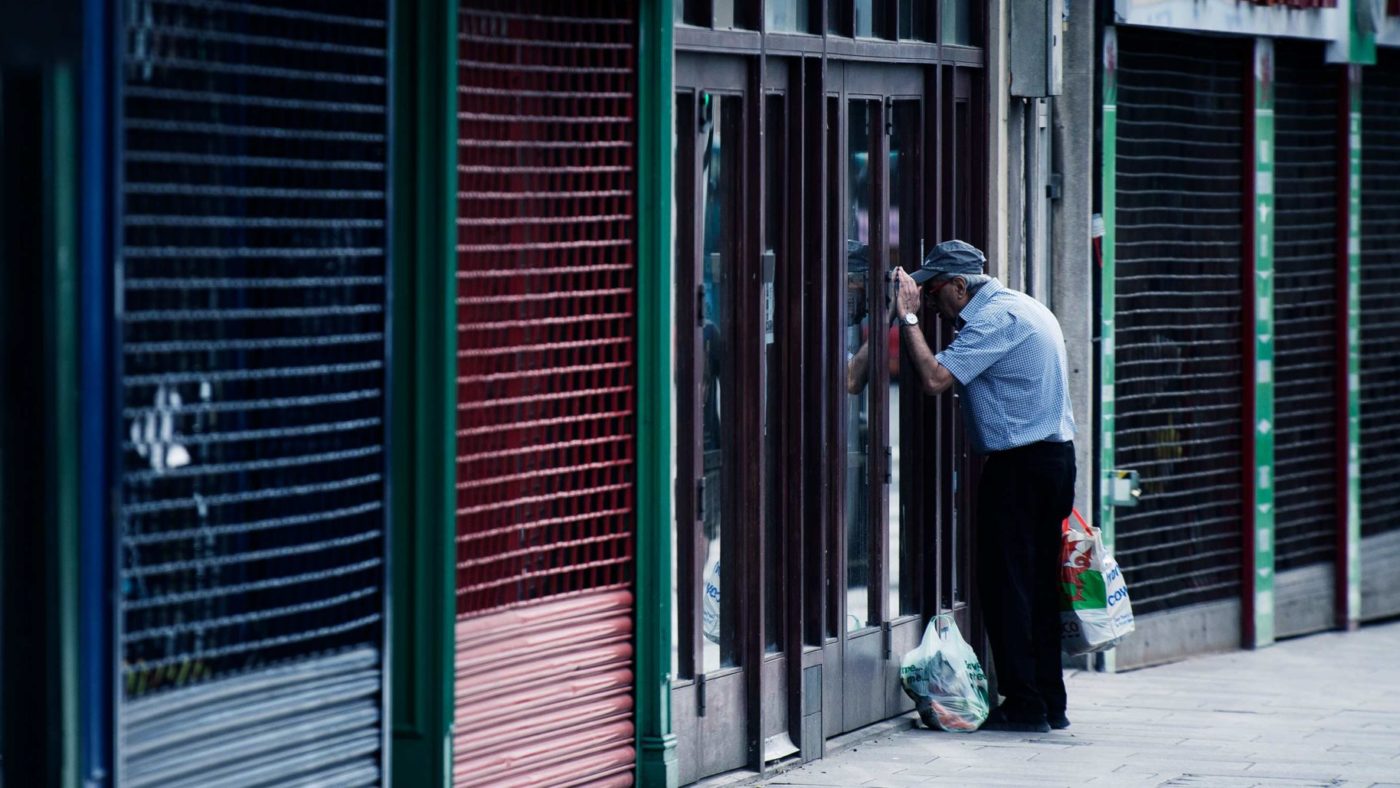There is something slightly soul-crushing about the news that the Government is mulling a new digital sales tax to ‘save the high street’.
It isn’t just the prospect of ministers raising the cost of living for online shoppers at a moment when they’re meant to be trying to kick-start the economy. Nor the fact that they’re restructuring the tax system to incentivise a way of shopping that increases risk of exposure to Covid-19.
No, the worst thing about it is really that it isn’t going to work, and pretty much everybody knows it.
The classic ‘high street’ was a pattern of commercial life which emerged in certain conditions, and those conditions are gone. The Internet isn’t even to blame: the rise of the out-of-town shopping outlet struck the killer blow.
Such developments are lamented by traditionalists, but they only happened because they offered a better experience for consumers in the form of greater convenience and lower prices. Brute-forcing the traditional high street back into contention would necessitate eroding those advantages – as the online sales tax attempts to do – and leaving ordinary shoppers worse off as a result.
None of this is to say that dying high streets aren’t a problem. No government should be content to see the centres of so many towns reduced to dispiriting deserts.
But fixating on the commercial habits of yesteryear misses the broader point. The question is how to get people back into town centres. The traditional high-street shop was simply one method of doing this, and one which isn’t coming back.
A much better alternative, and one which seems to be acknowledged as such almost everywhere except Whitehall, would be allowing town centres to convert to housing. Adding population density in such places would not only help to defer a little longer the need to build on the green belt, but the new population would support cafes, small supermarkets, and all the other businesses which grow up where people are but don’t incentivise destination shopping.
That this has not happened already is a symptom of the deeper problem that connects the death of high street to the housing crisis and much else, which is that in our post-Attlee world the State’s default setting is to try to preserve our post-War way of life in aspic.
Consider how extraordinary our current housing crisis would seem to a traveller from pre-WW2 Britain, where private companies were building not only new railway lines but whole swathes of new London to serve them (a perfect example of the harmonised growth of housing and infrastructure so often missing from post-War developments).
Or to a Victorian, who had witnessed in the mass migration of labourers from the countryside to the cities an extraordinarily sharp shift in our way of life which laid the foundations for the Industrial Revolution and the Empire, powered by the swift growth of the canal and then railway networks.
Everywhere we look, it is becoming harder and harder to adapt to new patterns of living. Not only does the planning system make it impossible to meet demand for housing, but essential infrastructure projects (which might once have been built in triplicate by competing barons) now take decades to deliver.
Not that adapting is always the order of the day: successive governments have repeatedly tried to slow change, or indeed halt it altogether, by propping up ailing industries or trying to force successful ones to relocate. To date, this has seldom ended well.
The cost of all this is desolate town centres and sky-high house prices. These compound with broader trends, described as ‘cost disease’, to create conditions where increasing numbers of people can’t afford to buy a house or start a family where they want to live, which in turn explains why people under 35 are proving so difficult to sell on what the Government is selling, whether that be Conservatism or the Union.
We may be about to witness the next evolution in working life. If Covid-19 really does lead to a sea-change in attitudes towards home working, many of our office districts could follow the high street into economic obsolescence – and take with them all the small shops which cater to those who work in them.
This need not be a disaster. Indeed, it could be a boon, opening up lots of new residential space in places where people want to live and which enjoy excellent public transport connections. And on this front, the Government has got it right, introducing planning changes which will make it much easier to repurpose properties employed by a range of different types of business, from restaurants to offices, without planning permission.
Which only makes it stranger that the same Government is using the cause of the high street to justify this online sales tax, based as it is on the opposite principle: not helping high streets to evolve, but trying to prevent the rest of society from doing so, even as the new way of doing things continues to lower costs, improve accessibility and choice, keep people safe, and create tens of thousands of jobs.
Of course, the tax system needs to evolve with the economy too, and if more of us are shopping online there may well be a case for protecting the tax base, especially with all the Covid spending to pay off.
But if this is really a revenue tax, Rishi Sunak should just say so. If he actually wants to help bricks-and-mortar retailers compete, on the other hand, he will have to look elsewhere. Business rates would be a place to start.
Click here to subscribe to our daily briefing – the best pieces from CapX and across the web.
CapX depends on the generosity of its readers. If you value what we do, please consider making a donation.


